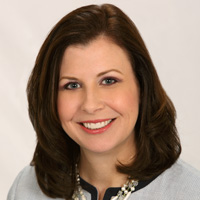3 Key Things to Consider Before Agreeing to Be a Guardian in a Trust
You might be surprised at how many questions arise surrounding financial issues, legal arrangements and lifestyle choices.


Profit and prosper with the best of Kiplinger's advice on investing, taxes, retirement, personal finance and much more. Delivered daily. Enter your email in the box and click Sign Me Up.
You are now subscribed
Your newsletter sign-up was successful
Want to add more newsletters?

Delivered daily
Kiplinger Today
Profit and prosper with the best of Kiplinger's advice on investing, taxes, retirement, personal finance and much more delivered daily. Smart money moves start here.

Sent five days a week
Kiplinger A Step Ahead
Get practical help to make better financial decisions in your everyday life, from spending to savings on top deals.

Delivered daily
Kiplinger Closing Bell
Get today's biggest financial and investing headlines delivered to your inbox every day the U.S. stock market is open.

Sent twice a week
Kiplinger Adviser Intel
Financial pros across the country share best practices and fresh tactics to preserve and grow your wealth.

Delivered weekly
Kiplinger Tax Tips
Trim your federal and state tax bills with practical tax-planning and tax-cutting strategies.

Sent twice a week
Kiplinger Retirement Tips
Your twice-a-week guide to planning and enjoying a financially secure and richly rewarding retirement

Sent bimonthly.
Kiplinger Adviser Angle
Insights for advisers, wealth managers and other financial professionals.

Sent twice a week
Kiplinger Investing Weekly
Your twice-a-week roundup of promising stocks, funds, companies and industries you should consider, ones you should avoid, and why.

Sent weekly for six weeks
Kiplinger Invest for Retirement
Your step-by-step six-part series on how to invest for retirement, from devising a successful strategy to exactly which investments to choose.
While it’s an honor to be asked to be the guardian of someone else’s children in the event of a tragedy, there are three key considerations before agreeing to be named guardian in estate documents.
My good friends, parents of two young daughters, recently went through the estate planning process wherein they created a family trust, wills and powers of attorney for financial affairs and health care. In that process, their attorney highlighted the importance of naming a guardian for their children in the case that both parents were to pass away before the children reached the age of 18.
For many parents, this is one of the most carefully considered and sometimes emotional decisions to be made. I often hear from my clients that they assume that a family member will step in, but there are many important things to consider before selecting a guardian.
From just $107.88 $24.99 for Kiplinger Personal Finance
Become a smarter, better informed investor. Subscribe from just $107.88 $24.99, plus get up to 4 Special Issues

Sign up for Kiplinger’s Free Newsletters
Profit and prosper with the best of expert advice on investing, taxes, retirement, personal finance and more - straight to your e-mail.
Profit and prosper with the best of expert advice - straight to your e-mail.
My friends naturally thought first about their close family members as possible guardians. Grandparents were considered, but depending on the age of grandparents and their health, it may not be reasonable for a grandparent to take on the responsibility of caring for a child for potentially a decade or more. Additionally, if grandparents have downsized to a smaller home or moved to a 55-and-over community, there may not be living space for additional people in their home, or their community may not allow minor children as permanent residents.
Next Up: Siblings Considered as Guardians in a Trust
Next, they considered their own siblings. A beloved aunt or uncle may be willing to be a guardian if needed, but you need to consider if they have their own families with children, and how much of a caregiving burden adding more children to the mix could be. You might also not agree with parenting styles or values that you want your children to be raised with. These same concerns may also apply to other extended family members you might consider.
In the end, my friends decided that they would be most comfortable asking me if I would be a guardian for their children if they passed away prematurely, saying that they felt comfortable that my role as honorary “auntie” to their children means that I love their kids and that I would be able to raise their children in the way they would hope. It was a huge honor to be asked. I told them I would think about it carefully and would probably have some questions.
Over the next week, I did think of important details that I needed to know before I could agree. Loving the kids was never a doubt, but the practicalities of possibly raising someone else’s children in what would most certainly be a tragic situation needed to be addressed.
If you are asked to be named a guardian in a family’s estate documents, here are some things to consider:
Financial considerations. If the parents were to pass away, are there enough assets to be able to raise the children to adulthood, or would you be expected to be able to pay for their needs? Do the parents have life insurance that they are expecting to provide the money needed? If so, how much?
What other assets would be available to care for the children? Would you be responsible for managing them, or are there other professionals involved? Are college savings funds already started for the children?
Even if you are willing to take on the physical and emotional care of children, you need to know if you will also be providing financial care of them as well.
Legal arrangements. Is there a family trust? If so, who is the successor trustee of the trust? What are the terms of the trust related to uses of the assets? The most common revocable living trusts allow for the “health, education, maintenance and support” of the beneficiaries, but there can be age conditions for the funds, or certain funds may only be available after life milestones, like education, employment or marriage, are met, which would be helpful to know.
Lifestyle choices. Understanding how the parents hope their children will be raised is important for a guardian to know. Do the parents expect that their children will still be living in the same community or even the same home as they are now? Will they want their children to continue at the same school, attend the same religious institutions or stay in the same neighborhood?
I have seen trust terms that specify that funds are available for the family home to be paid off and maintained because the guardian is required to move into the family home so as to not further disrupt the children’s previous lifestyle. There is nothing wrong with that arrangement, provided the guardian knows and agrees with that expectation.
Even inquiries about hobbies and activities are an important discussion point – do the parents feel strongly that their children will play a certain sport or absolutely do not want their kids to do an activity, and do they have written guidelines around what is “allowed” by the trust? An example that I have seen is a restriction on paying for certain sports participation due to worries about concussions – the trust could pay for any fees related to low-impact sports but specifically prohibited paying for contact sports.
If any of these types of lifestyle expectations would create problems for the guardian, it is best to discuss what the parents are willing to adjust, and if that’s not possible, you can decline being the guardian.
Being asked to be a guardian for children, knowing that your family member or friend has the confidence that you would raise their children well in their absence, is an enormous compliment. And most people may be inclined to casually agree, out of love for the children involved, but in the rare event this actually happens, it is imperative that you are realistic about what is being asked and the responsibility you are agreeing to take on.
I Said Yes to Being Named Guardian in Estate Planning Documents
In my case, the parents and I had a substantial discussion about the plans they had made for their children and what they would expect me to do if needed. I did say yes to being named as guardian in their estate planning documents, confident that not only do I love their children, but I would also be reasonably able to fulfill the hopes and expectations of the parents if needed.
In cases where a guardian is needed, simply loving the child is not enough, and good planning and communication can ease a difficult situation.
The CDFA® mark is the property of The Institute for Divorce Financial Analysts, which reserve sole rights to its use, and is used by permission.
Certified Financial Planner Board of Standards Inc. (CFP Board) owns the CFP® certification mark, the CERTIFIED FINANCIAL PLANNER™ certification mark and the CFP® certification mark (with plaque design) logo in the United States, which it authorizes use of by individuals who successfully complete CFP Board’s initial and ongoing certification requirements.
Mercer Advisors Inc. is the parent company of Mercer Global Advisors Inc. and is not involved with investment services. Mercer Global Advisors is registered as an investment adviser with the SEC. Content is for educational and illustrative purposes only and does not imply a recommendation or solicitation to buy or sell a particular security or to engage in any particular investment strategy. All expressions of opinion reflect the judgment of the author as of the date of publication and are subject to change. The information is believed to be accurate, but is not guaranteed or warranted by Mercer Advisors.
Profit and prosper with the best of Kiplinger's advice on investing, taxes, retirement, personal finance and much more. Delivered daily. Enter your email in the box and click Sign Me Up.

Kara Duckworth is the Managing Director of Client Experience at Mercer Advisors and also leads the company’s InvestHERs program, focused on providing financial planning to serve the specific needs of women. She is a CERTIFIED FINANCIAL PLANNER and Certified Divorce Financial Analyst®. She is a frequent public speaker on financial planning topics and has been quoted in numerous industry publications.
-
 5 Vince Lombardi Quotes Retirees Should Live By
5 Vince Lombardi Quotes Retirees Should Live ByThe iconic football coach's philosophy can help retirees win at the game of life.
-
 The $200,000 Olympic 'Pension' is a Retirement Game-Changer for Team USA
The $200,000 Olympic 'Pension' is a Retirement Game-Changer for Team USAThe donation by financier Ross Stevens is meant to be a "retirement program" for Team USA Olympic and Paralympic athletes.
-
 10 Cheapest Places to Live in Colorado
10 Cheapest Places to Live in ColoradoProperty Tax Looking for a cozy cabin near the slopes? These Colorado counties combine reasonable house prices with the state's lowest property tax bills.
-
 Don't Bury Your Kids in Taxes: How to Position Your Investments to Help Create More Wealth for Them
Don't Bury Your Kids in Taxes: How to Position Your Investments to Help Create More Wealth for ThemTo minimize your heirs' tax burden, focus on aligning your investment account types and assets with your estate plan, and pay attention to the impact of RMDs.
-
 Are You 'Too Old' to Benefit From an Annuity?
Are You 'Too Old' to Benefit From an Annuity?Probably not, even if you're in your 70s or 80s, but it depends on your circumstances and the kind of annuity you're considering.
-
 In Your 50s and Seeing Retirement in the Distance? What You Do Now Can Make a Significant Impact
In Your 50s and Seeing Retirement in the Distance? What You Do Now Can Make a Significant ImpactThis is the perfect time to assess whether your retirement planning is on track and determine what steps you need to take if it's not.
-
 Your Retirement Isn't Set in Stone, But It Can Be a Work of Art
Your Retirement Isn't Set in Stone, But It Can Be a Work of ArtSetting and forgetting your retirement plan will make it hard to cope with life's challenges. Instead, consider redrawing and refining your plan as you go.
-
 The Bear Market Protocol: 3 Strategies to Consider in a Down Market
The Bear Market Protocol: 3 Strategies to Consider in a Down MarketThe Bear Market Protocol: 3 Strategies for a Down Market From buying the dip to strategic Roth conversions, there are several ways to use a bear market to your advantage — once you get over the fear factor.
-
 For the 2% Club, the Guardrails Approach and the 4% Rule Do Not Work: Here's What Works Instead
For the 2% Club, the Guardrails Approach and the 4% Rule Do Not Work: Here's What Works InsteadFor retirees with a pension, traditional withdrawal rules could be too restrictive. You need a tailored income plan that is much more flexible and realistic.
-
 Retiring Next Year? Now Is the Time to Start Designing What Your Retirement Will Look Like
Retiring Next Year? Now Is the Time to Start Designing What Your Retirement Will Look LikeThis is when you should be shifting your focus from growing your portfolio to designing an income and tax strategy that aligns your resources with your purpose.
-
 I'm a Financial Planner: This Layered Approach for Your Retirement Money Can Help Lower Your Stress
I'm a Financial Planner: This Layered Approach for Your Retirement Money Can Help Lower Your StressTo be confident about retirement, consider building a safety net by dividing assets into distinct layers and establishing a regular review process. Here's how.